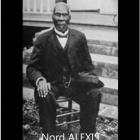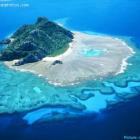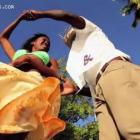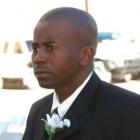ADVERTISEMENT
Photos
Haitian Bishop Francois-Wolff Ligonde
Here is a picture of Haitian Bishop Francois-Wolff Ligonde.
He was the one who presided over the lavish wedding of former dictator Jean-Claude "Baby Doc" Duvalier and and Michele Bennett. He was viewed by many political analysts as an ardent supporter of the Duvalier regime who was accused for many Human Right abuse.
It was reported that Francois-Wolff Ligonde was also the uncle of Michele Bennett.
François-Wolff Ligondé was born on January 17, 1928 in the city of Les cayes.
Charles Riviere-Herard and Independence of Dominican republic
Charles Rivière-Hérard was an officer in the Haitian Army under Alexandre Pétion. He became President of Haiti on 4 April 1843.
Soon after his rise to power, Santo Domingo, staged a revolt. On 27 February 1844, rebels occupied the capital city of Santo Domingo and the following day declared the independence of the Dominican Republic from Haiti.
Charles Rivière-Hérard responded with an army of 25,000 soldiers on 10 March 1844, he entered the new Dominican Republic with the intent of returning the eastern half of the island to Haitian rule.
He was quickly defeated, and forced to retreat with his army back into Haïti.
Antoine Simon and his National Railroad Project
One of the major goals of President Antoine Simon was to build a railroad linking Port-au-Prince and Cap-Haitian.
To make this possible, Antoine Simon contracted with American companies such as "MacDonald Contract" to build a railway line between Port-au-Prince and Cap-Haitien. Included in that contract was the cultivation and export of sugar and bananas by the Haitian American Sugar Company. That same contract led to the paving of streets and electrification of Port-au-Prince which facilitate car transportation in Haiti.
Dumarsais Estime and United States
The administration of Dumarsais Estime included a coalition of dissidents who led opposition to previous regimes. He did not receive lot of support from the American government who viewed his government unfavorably. His government was labeled left-wing. Dumarsais tried to solidify ties to the United States by exaggerating the communist threat to his government.
Ertha Pascal-Trouillot and Jean Bertrand Aristide
On 6 January 1991, as president Jean Bertrand Aristide was declared winner of the election, following the exile of Jean-Claude Duvalier, a coup D'Etat was orchestrated by Roger Lafontant, a Tonton Macoute leader. The coup D'Etat was done to pre-empt an Aristide presidency took place. Following the coup, Roger Lafontant, seized the provisional president Ertha Pascal-Trouillot and declared himself president.
This was a short lived action. The Haitian population and a large numbers of Aristide supporters took to the streets to protest the Coup D'Etat. Roger Lafontant declared martial law. However, under the commend of General Herard Abraham, the Haitian army crushed the incipient coup and reestablished order
Erta pascal-Trouillot and General Herard Abraham
Here is a picture of two people who made an important mark in the history of Haiti Former Haitian President Ertha Pascal-Trouillot and General Hérard Abraham.
On 6 January 1991, a coup attempt took place during the government of Ertha Pascal-Trouillot. Roger Lafontant, a Tonton Macoute leader under Jean-Claude Duvalier, took over power of the provisional president Ertha Pascal-Trouillot and declared himself president. The army, under the command of General Herard Abraham crushed the incipient coup.
Herard Abraham was in support of the 1986 coup against Jean Claude Duvalier. He then served as foreign minister for the first time under Henri Namphy from 1987 to 1988. He was also acting President of Haïti on March 10, 1990
Douce Marcos or Dous Makos from Petit Goave
The popular Haitian Douce Marcos or Dous Makos is originated from the city of Petit Goave. It has been exproted all over Haiti and the Diaspora.
Based on the information available to us, Douce Marcoss was first produced by a Belgian entrepreneur who settled and put up his business in the coastal town of Petit-Goave in Haiti, Fernand Macos back in 1939. It is made from concentrated milk, which is about 80% to 90% of Dous Makos. You start with combining milk, sugar, and optional cinnamon in order to make a concentrated mixture. Then chocolate, vanilla, and food coloring are added.
The Haitian Mango
Haiti has some of the best Mangoes in the world. One thing you can be sure of is that Haitian mango is a Certified Organic product. some of the most popular mangoes in the island: Francine mango, the Madame Francis mango.
Mango fruit originated in Southeast Asia. Over the years, this juicy tropical treat has spread to many parts of the tropical and sub-tropical world, where the climate allows the mango to grow best.
In Haiti, mango is one of our leading export products, with over 2.5 million cases of Mango each year, with the USA getting most of them.
The Haitian mangoes have just a six-to-eight week season, so you have to watch carefully for them in late spring. It is an excellent source of vitamins A and C.
Making Sham Sham
Cham-Cham or Sham Sham, a Haitian specialty food
Haiti has a variety of food and just like its cham-cham or Sham Sham, Haitian cuisine is reputation for its ability to scintillate the palate. Corn that is at the basis of Sham Sham is consumed in Haiti in a variety of ways. We make Mais Moulu or Mayi Moulen out of it.
Peasants cultivate corn to make a variety of cereals for food and animal feeds
The delicious cornmeal drink originated with the indigenous peoples of the Americas, our Taino ancestors. In Haiti, we call it Akasan.
Haitian cuisine has its origin from several culinary styles from the various historical ethnic groups that populate the country. Its food is influenced by the French, African,the Taíno Amerindians Spanish and Middle Eastern
Bon Appétit.
Here is a picture of a typical Haitian food, Cassava
Cassava, also called manioc and manioc root, native to the Caribbean island of Haiti and South America. Cassava, when dried is called tapioca, while its fermented, flaky version is named garri.
Cassava is one of the largest source of food carbohydrates in the tropics.
Cassava is sweet and bitter. It contains antinutritional factors and toxins
Haiti maintains a unique flavor in term of food. Haitian cuisine is based on Creole and French cooking styles.
Several dishes are specifically and well known as native to Haiti. Some of the most popular include Griot.


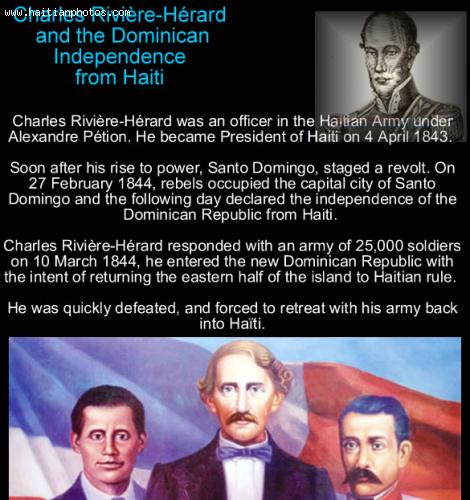
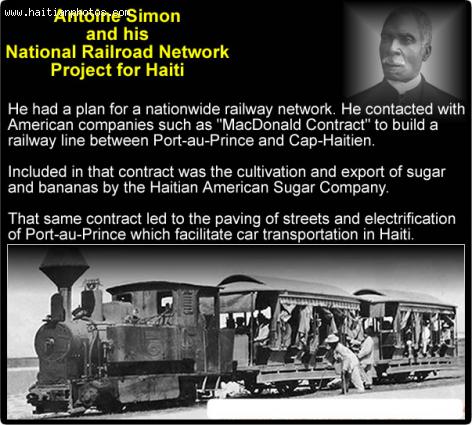
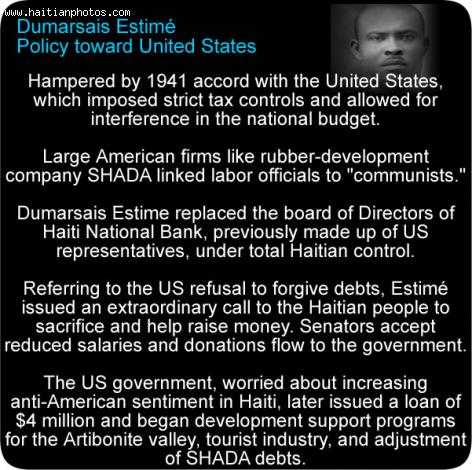
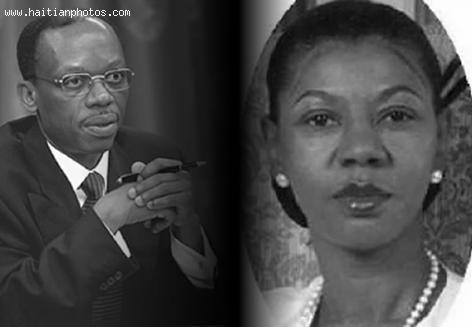
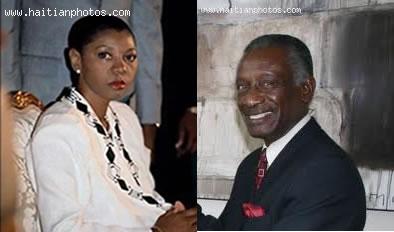
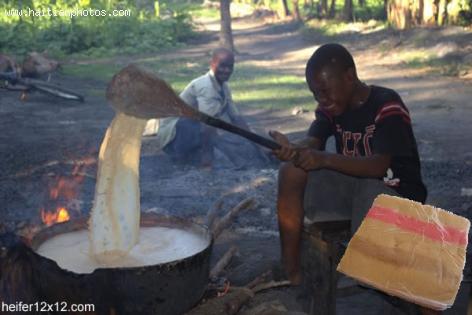
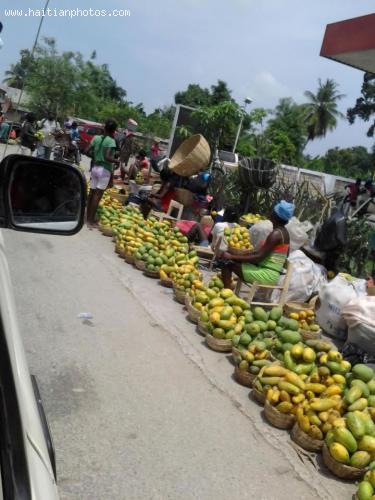
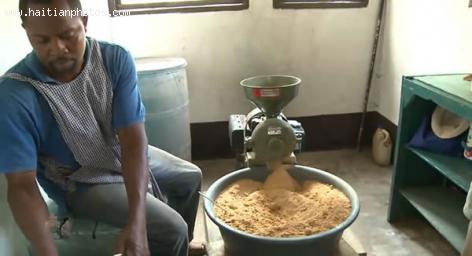
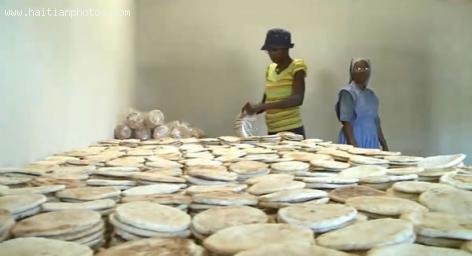
 François Nicolas Duvalier Potential Candidate for President of...
François Nicolas Duvalier Potential Candidate for President of... 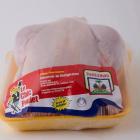 Le Chic Poulet by Haiti Broilers S.A.
Le Chic Poulet by Haiti Broilers S.A. 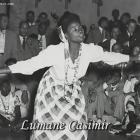 Lumane Casimir And Songs
Lumane Casimir And Songs 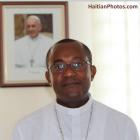 Pope Francis appointed Mgr. Launay Saturne Archbishop of...
Pope Francis appointed Mgr. Launay Saturne Archbishop of...  Philippe Vorbe entered world football Hall of Fame, CONCACAF
Philippe Vorbe entered world football Hall of Fame, CONCACAF  Haitiano-Japanese Naomi Osaka wins the US Open against Serena...
Haitiano-Japanese Naomi Osaka wins the US Open against Serena... 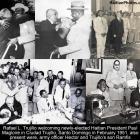 Rafael L. Trujillo welcoming Paul Magloire in Santo Domingo
Rafael L. Trujillo welcoming Paul Magloire in Santo Domingo 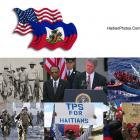 Haitians, the second largest black immigrant group in the US
Haitians, the second largest black immigrant group in the US 
